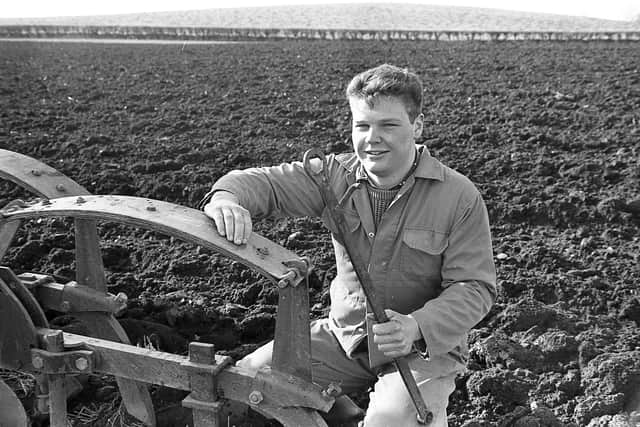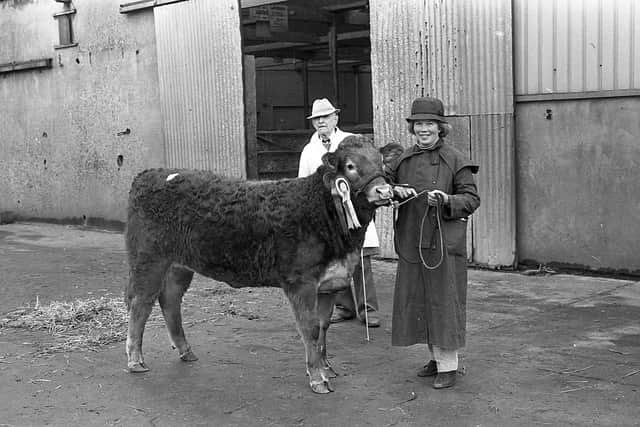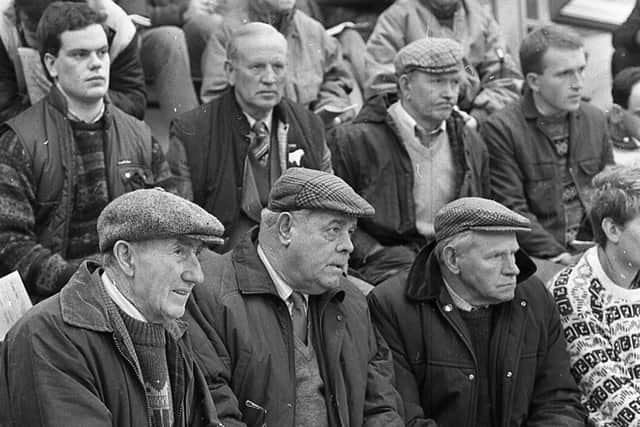Bygone Days: Ulster farmers adopt ‘wait and see’ policy as UK farm incomes cut (1954)
and live on Freeview channel 276
Giving the point of view of the National Farmers’ Union on the price review, Sir James Turner, the president, said at a press conference in London: “The cut of £30,000,000 the minimum income guaranteed to the industry means that British farmers will make possible a considerable saving to the taxpayer.
“Unfortunately, this saving seems likely to be achieved at the expense slowing down the expansion of home food production hitherto laid down by the government necessary to maintain the national standard of living.
Advertisement
Advertisement
“Previously the government had declared that target of 60 per cent, above pre-war production should be reached by 1956. The White Paper now makes it clear that the changes in production policy which it lays down will postpone this achievement for two or three years.


“At this year’s review, the government give the first indication that quantity is no longer its principal aim and that, while 60 per cent, above pre-war production Is still a target, the primary objective is not the reduction of Exchequer liability.
“That this can be achieved by the progressive increase quality and efficiency which brings down coats has long been recognised by the unions, who, with the government’s recent assurances on agricultural marketing behind them, are making strenuous efforts to set up the marketing organisations which alone can do it quickly and effectively.”
Sir James said that it was, in the light of that, consideration that the final paragraph of a resolution passed at a meeting of the NFU Council should be read.
Advertisement
Advertisement
The resolution declared: “The council of the N.F.U. of England and Wales endorse the action of the United Kingdom Farmers’ unions’ negotiating team in arriving at a settlement of prices and guarantees for the commodities in the first schedule of the Agriculture Act, 1947, following the review of the economic condition and prospects of the agricultural industry in accordance with part one of that Act.


“The council nevertheless regard the substantial reduction In the guaranteed minimum income of agriculture of £30,000,000 as disproportionate burden to be shouldered by this industry In the government’s determined attempts to reduce total Exchequer commitments.
“Furthermore, the council, recognising the growing relevance of market returns to the income of the industry, demand that the government afford every possible facility for action to be taken by the industry to improve its commodity marketing organisation and to reduce the unit costs of production and Improve quality by positive means.”
Meanwhile, Northern Ireland farmers had not reacted sharply to the new prices. The general attitude seemed to be one of a cautious “wait and see” policy and a feeling that the negotiations might have had a more unfavourable result.
Advertisement
Advertisement
“We will have to see how the prices will work out,” said one prominent Armagh farmer.


The Executive Committee of the Ulster Farmers’ Union was to meet to consider the prices and a statement was expected to be issued after the meeting.
Satisfaction was expressed that the support price for eggs has not been reduced, but it is expected that the reduction in the deadweight price of pigs will lead to a alight falling off in production. Generally the emphasis seems to be on quality production.
A prominent agriculturist told the News Letter: “Haphazard methods of farming will not do in the future.”
Advertisement
Advertisement
Commenting the News Letter stated: “The Ulster farmer who, asked to comment on the new farm prices, said: ‘We shall have to wait and see,’ said in short form almost all there is to be said about this transitional, experimental scheme devised by the Minister of Agriculture after long discussion with the three farmers’ unions.”


It concluded: Now that the price review is out of the way, Northern Ireland farmers await the separate arrangements which will take account of their special position - arrangements which, in the words the Prime Minister, will put them ‘on the mainland of the United Kingdom’.”